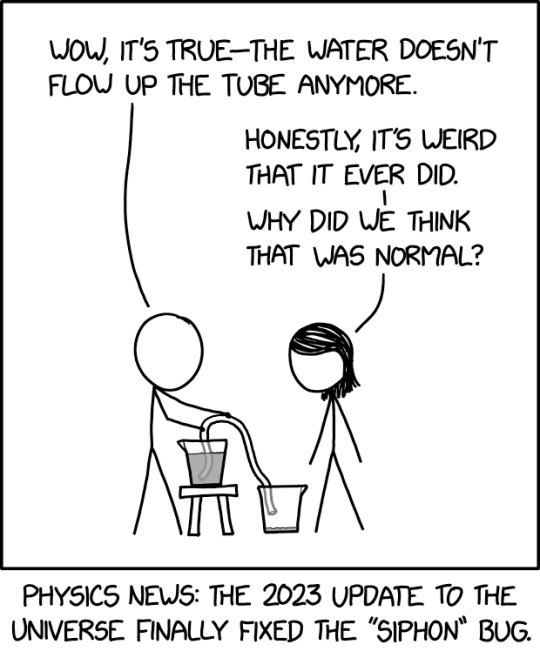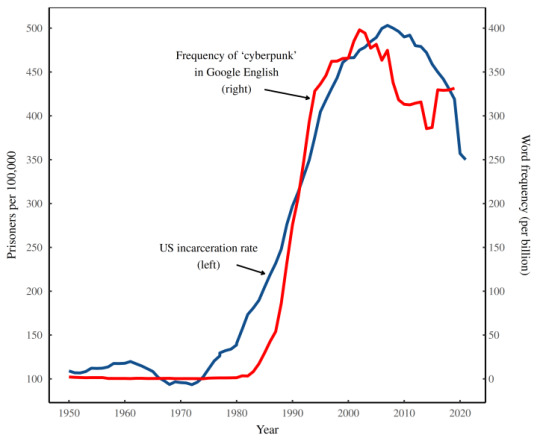#crypto privacy
Explore tagged Tumblr posts
Text
Buy virtual card with bitcoin and get #discount
Unlimited transition and Buy virtual credit card with cryptocurrency
#crypto changer#btc apps#legal crypto#crypto uger#crypto privacy#crypto cyber security#btc transfer#crypto gift card#crypto depertment
0 notes
Text
Buy virtual card with bitcoin and get #discount
Unlimited transition and Buy virtual credit card with cryptocurrency
#legal crypto#crypto uger#crypto privacy#crypto cyber security#btc transfer#crypto gift card#crypto depertment#crypto eyes
0 notes
Text
Buy virtual card with bitcoin and get #discount
Unlimited transition and Buy virtual credit card with cryptocurrency
#future crypto#improve btc#crypto now#crypto changer#btc apps#legal crypto#crypto uger#crypto privacy
0 notes
Text
How to Set Up Your First Cryptocurrency Wallet
Entering the world of cryptocurrency is an exciting venture, offering the promise of financial independence, privacy, and a new way to engage with digital assets. However, before you can buy, sell, or trade any cryptocurrency, you need to know how to set up your first cryptocurrency wallet. This crucial step is the foundation for safely managing your digital currency, ensuring that your assets…
#Bitcoin#blockchain#blockchain security#crypto adoption#crypto beginners#crypto ecosystem#crypto education#crypto essentials#crypto guide#crypto investments#crypto management#crypto market#crypto privacy#crypto protection#crypto security#crypto setup#crypto storage#crypto tips#crypto tools#crypto trading#crypto transactions#crypto tutorial#crypto wallet#crypto world#cryptocurrency#decentralized finance#digital assets#digital currency#digital finance#digital money
0 notes
Text
Buy virtual card with bitcoin and get #discount#Unlimited transition and Buy virtual credit card with cryptocurrency
0 notes
Text
Buy virtual card with bitcoin and get #discount
Unlimited transition and Buy virtual credit card with cryptocurrency
#crypto bot#crypto airdrop#crypto mining#crypto token#crypto updates#legal crypto#crypto uger#crypto privacy#crypto cyber security#btc transfer#crypto gift card#crypto depertment
0 notes
Text
Buy virtual card with bitcoin and get #discount
Unlimited transition and Buy virtual credit card with cryptocurrency
#crypto uger#crypto privacy#crypto cyber security#btc transfer#crypto gift card#crypto depertment#crypto eyes
0 notes
Text

An important question for those who want to use #Bitcoin and other #Crypto anonymously… is Bitcoin mixing obsolete?
An in-depth look at how to use cryptocurrency safely and privately.
228 notes
·
View notes
Text
I haven’t Leo posted in so many…so long…..so much……








#percy jackson#percy jackon and the olympians#heroes of olympus#leo valdez#memes#my crappy art#don’t make fun of my handwriting#art#leo valdez art#i love him he’s so silly#gonna get you with hammers#I think he deserves to run a crypto like scam for Hephaestus tv#he goes ‘dad think about the privacy violations we’re on American soil’#and he goes ‘they just need to pay me through venmo every hour of screen time I have’#he’s RICH in crypto
89 notes
·
View notes
Text
Now what?
First things first, protect yourself. Even if you think the threat of authoritarianism is overblown, take steps to defend against it. If you’re a journalist, maybe read this section twice.
Find your communities. Most people have many communities: the friend group you hang out with in real life, your family, your neighbors, your internet friends, your coworkers, your church or synagogue or mosque or other religious community. Strengthen these communities. If you don’t feel like you have much in the way of community, begin forming them: join new social groups, and try to meet likeminded people near you. Introduce yourself to your neighbors.
Join (or start) a union. There’s strength in numbers, and especially if your industry may fall under threat, you’ll want to unionize now and not wait for that threat to materialize.
Consider taking proactive steps to obtain healthcare that could become challenging to obtain in the future, if you are able. For example, if you need to replace or are considering getting an IUD, now might be the time.
Use end-to-end-encrypted messaging apps for your communications. I use Signal heavily, but there are other options. Please know that not all apps that advertise E2EE enable it by default or offer it for group chats (looking at you Telegram), so double check that.
Consider choosing a VPN to help protect your privacy online, and learn about the pros and cons of using them. Learn when, why, and how to use Tor. The EFF has good guides depending on your operating system.
Consider reducing your reliance on centralized social networks controlled by billionaires, and instead establishing a web presence you control. Evaluate the risks when choosing hosting providers, make backups, and make it as easy as possible to switch hosts should the need arise.
Consider no longer using apps that collect and store sensitive data, such as period tracker or fertility apps. Be cautious about location tracking and other tech-enabled surveillance.
Find and support trusted sources of news and information. If you rely heavily on mainstream news outlets owned by billionaires who were first in line to congratulate Trump on his victory, consider diversifying your media diet. ProPublica, 404 Media, and Flaming Hydra are a couple of great publications, or the Institute for Nonprofit News has a great directory of many more. Subscribe to and/or financially support independent solo writers like Parker Molloy (The Present Age), Erin Reed, Marisa Kabas (The Handbasket), and Seamus Hughes (Court Watch). Pay for a subscription to your local newspaper. Maybe also subscribe to a non-US paper while you’re at it. Consider supplementing your social feeds with an RSS-powered blogroll.
#reference#surveillance capitalism#authoritarianism#billionaires#social media#news#information diet#ai#propublica#404media#eff#electronic frontier foundation#election 2024#us politics#big tech#artificial intelligence#privacy#technology#google#facebook#crypto#vpn#signal#resources#journalism#citation needed#molly white
4 notes
·
View notes
Text
Revenge of the Linkdumps

Next Saturday (May 20), I’ll be at the GAITHERSBURG Book Festival with my novel Red Team Blues; then on May 22, I’m keynoting Public Knowledge’s Emerging Tech conference in DC.
On May 23, I’ll be in TORONTO for a book launch that’s part of WEPFest, a benefit for the West End Phoenix, onstage with Dave Bidini (The Rheostatics), Ron Diebert (Citizen Lab) and the whistleblower Dr Nancy Olivieri.

If you’ve followed my work for a long time, you’ve watched me transition from a “linkblogger” who posts 5–15 short hits every day to an “essay-blogger” who posts 5–7 long articles/week. I’m loving the new mode of working, but returning to linkblogging is also intensely, unexpectedly gratifying:
https://pluralistic.net/2023/05/02/wunderkammer/#jubillee
If you’d like an essay-formatted version of this post to read or share, here’s a link to it on pluralistic.net, my surveillance-free, ad-free, tracker-free blog:
https://pluralistic.net/2023/05/13/four-bar-linkage/#linkspittle

[Image ID XKCD #2775: Siphon. Man: ‘Wow, it’s true — the water doesn’t flow up the tube anymore.’ Woman: ‘Honestly, it’s weird that it ever did. Why did we ever think it was normal?’ Caption: ‘Physics news: the 2023 update to the universe finally fixed the ‘siphon’ bug.’]
My last foray into linkblogging was so great — and my backlog of links is already so large — that I’m doing another one.
Link the first: “Siphon,” XKCD’s delightful, whimsical “physics-how-the-fuck-does-it-work” one-shot (visit the link, the tooltip is great):
https://xkcd.com/2775/

[Image ID: A Dutch safety poster by Herman Heyenbrock, warning about the hazards of careless table-saw use, featuring a hand with two amputated fingers.]
Next is “Hoogspanning,” 50 Watts’s collection of vintage Dutch workplace safety posters, which exhibit that admirable Dutch frankness to a degree that one could mistake for parody, but they’re 100% real, and amazing:
https://50watts.com/Hoogspanning-More-Dutch-Safety-Posters
They’re ganked from Geheugenvannederland (“Memory of the Netherlands”):
https://geheugenvannederland.nl/
While some come from the 1970s, others date back to the 1920s and are likely public domain. I’ve salted several away in my stock art folder for use in future collages.
All right, now that the fun stuff is out of the way, let’s get down to some crunch tech-policy. To ease us in, I’ve got a game for you to play: “Moderator Mayhem,” the latest edu-game from Techdirt:
https://www.techdirt.com/2023/05/11/moderator-mayhem-a-mobile-game-to-see-how-well-you-can-handle-content-moderation/
Moderator Mayhem started life as a card-game that Mike Masnick used to teach policy wonks about the real-world issues with content moderation. You play a mod who has to evaluate content moderation flags from users while a timer ticks down. As you race to evaluate users’ posts for policy compliance, you’re continuously interrupted. Sometimes, it’s “helpful” suggestions from the company’s AI that wants you to look at the posts it flagged. Sometimes, it’s your boss who wants you to do a trendy “visioning” exercise or warning you about a “sensitivity.” Often, it’s angry ref-working from users who want you to re-consider your calls.
The card-game version is legendary but required a lot of organization to play, and the web version (which is better in a mobile browser, thanks to a swipe-left/right mechanic) is something you can pick up in seconds. This isn’t merely highly recommended; I think that one could legitimately refuse to discuss content moderation policies and critiques with anyone who hasn’t played it;
https://moderatormayhem.engine.is/
Or maybe that’s too harsh. After all, tech policy is a game that everyone can play — and more importantly, it’s a game everyone should play. The contours of tech regulation and implementation touch rub up against nearly every aspect of our lives, and part of the reason it’s such a mess is that the field has been gatekept to shit, turned into a three-way fight between technologists, policy wonks and economists.
Without other voices in the debate, we’re doomed to end up with solutions that satisfy the rarified needs and views of those three groups, a situation that is likely to dissatisfy everyone else.
However. However. The problem is that our technology is nowhere near advanced enough to be indistinguishable from magic (RIP, Sir Arthur). There’s plenty of things everyone wishes tech could do, but it can’t, and wanting it badly isnlt enough. Merely shouting “nerd harder!” at technologists won’t actually get you what you want. And while I’m rattling off cliches: a little knowledge is a dangerous thing.
Which brings me to Ashton Kutcher. Yes, that Ashton Kutcher. No, really. Kutcher has taken up the admirable, essential cause of fighting Child Sex Abuse Material (CSAM, which is better known as child pornography) online. This is a very, very important and noble cause, and it deserves all our support.
But there’s a problem, which is that Kutcher’s technical foundations are poor, and he has not improved them. Instead, he cites technologies that he has a demonstrably poor grasp upon to call for policies that turn out to be both ineffective at fighting exploitation and to inflict catastrophic collateral damage on vulnerable internet users.
Take sex trafficking. Kutcher and his organization, Thorn, were key to securing the passage of SESTA/FOSTA, a law that was supposed to fight online trafficking by making platforms jointly liable when they were used to facilitate trafficking:
https://www.engadget.com/2019-05-31-sex-lies-and-surveillance-fosta-privacy.html
At the time, Kutcher argued that deputizing platforms to understand and remove which user posts were part of a sex crime in progress would not inflict collateral damage. Somehow, if the platforms just nerded hard enough, they’d be able to remove sex trafficking posts without kicking off all consensual sex-workers.
Five years later, the verdict is in, and Kutcher was wrong. Sex workers have been deplatformed nearly everywhere, including from the places where workers traded “bad date” lists of abusive customers, which kept them safe from sexual violence, up to and including the risk of death. Street prostitution is way up, making the lives of sex workers far more dangerous, which has led to a resurgence of the odious institution of pimping, a “trade” that was on its way to vanishing altogether thanks to the power of the internet to let sex workers organize among themselves for protection:
https://aidsunited.org/fosta-sesta-and-its-impact-on-sex-workers/
On top of all that, SESTA/FOSTA has made it much harder for cops to hunt down and bust actual sex-traffickers, by forcing an activity that could once be found with a search-engine into underground forums that can’t be easily monitored:
https://www.techdirt.com/2018/07/09/more-police-admitting-that-fosta-sesta-has-made-it-much-more-difficult-to-catch-pimps-traffickers/
Wanting it badly isn’t enough. Technology is not indistinguishable from magic.
A little knowledge is a dangerous thing.
Kutcher, it seems, has learned nothing from SESTA/FOSTA. Now he’s campaigning to ban working cryptography, in the name of ending the spread of CSAM. In March, Kutcher addressed the EU over the “Chat Control” proposal, which, broadly speaking, is a ban on end-to-end encrypter messaging (E2EE):
https://www.brusselstimes.com/417985/ashton-kutcher-spotted-in-the-european-parliament-promoting-childrens-rights
Now, banning E2EE would be a catastrophe. Not only is E2EE necessary to protect people from griefers, stalkers, corporate snoops, mafiosi, etc, but E2EE is the only thing standing between the world’s dictators and total surveillance of every digital communication. Even tiny flaws in E2EE can have grave human rights concerns. For example, a subtle bug in Whatsapp was used by NSO Group to create a cyberweapon called Pegasus that the Saudi royals used to lure Jamal Khashoggi to his grisly murder:
https://www.theguardian.com/world/2021/jul/18/nso-spyware-used-to-target-family-of-jamal-khashoggi-leaked-data-shows-saudis-pegasus
Because the collateral damage from an E2EE ban would be so far-ranging (beyond harms to sex workers, whose safety is routinely disregarded by policy-makers), people like Kutcher can’t propose an outright ban on E2EE. Instead, they have to offer some explanation for how the privacy, safety and human rights benefits of E2EE can be respected even as encryption is broken to hunt for CSAM.
Kutcher’s answer is something called “fully homomorphic encryption” (FHE) which is a theoretical — and enormously cool — way to allow for computing work to be done on encrypted data without decrypting it. When and if FHE are ready for primetime, it will be a revolution in our ability to securely collaborate with one another.
But FHE is nowhere near the state where it could do what Kutcher claims. It just isn’t, and once again, wanting it badly is not enough. Writing on his blog, the eminent cryptographer Matt Green delivers a master-class in what FHE is, what it could do, and what it can’t do (yet):
https://blog.cryptographyengineering.com/2023/05/11/on-ashton-kutcher-and-secure-multi-party-computation/
As it happens, Green also gave testimony to the EU, but he doesn’t confine his public advocacy work to august parliamentarians. Green wants all of us to understand cryptography (“I think cryptography is amazing and I want everyone talking about it all the time”). Rather than barking “stay in your lane” at the likes of Kutcher, Green has produced an outstanding, easily grasped explanation of FHE and the closely related concept of multi-party communication (MPC).
This is important work, and it exemplifies the difference between simplifying and being simplistic. Good science communicators do the former. Bad science communicators do the latter.
While Kutcher is presumably being simplistic because he lacks the technical depth to understand what he doesn’t understand, technically skilled people are perfectly capable of being simplistic, when it suits their economic, political or ideological goals.
One such person is Geoffrey Hinton, the so-called “father of AI,” who resigned from Google last week, citing the existential risks of “runaway AI” becoming superintelligent and turning on its human inventors. Hinton joins a group of powerful, wealthy people who have made a lot of noise about the existential risk of AI, while saying little or nothing about the ongoing risks of AI to people with disabilities, poor people, prisoners, workers, and other groups who are already being abused by automated decision-making and oversight systems.
Hinton’s nonsense is superbly stripped bare by Meredith Whittaker, the former Google worker organizer turned president of Signal, in a Fast Company interview with Wilfred Chan:
https://www.fastcompany.com/90892235/researcher-meredith-whittaker-says-ais-biggest-risk-isnt-consciousness-its-the-corporations-that-control-them
The whole thing is incredible, but there’s a few sections I want to call to your attention here, quoting Whittaker verbatim, because she expresses herself so beautifully (sci-comms done right is a joy to behold):
I think it’s stunning that someone would say that the harms [from AI] that are happening now — which are felt most acutely by people who have been historically minoritized: Black people, women, disabled people, precarious workers, et cetera — that those harms aren’t existential.
What I hear in that is, “Those aren’t existential to me. I have millions of dollars, I am invested in many, many AI startups, and none of this affects my existence. But what could affect my existence is if a sci-fi fantasy came to life and AI were actually super intelligent, and suddenly men like me would not be the most powerful entities in the world, and that would affect my business.”
I think we need to dig into what is happening here, which is that, when faced with a system that presents itself as a listening, eager interlocutor that’s hearing us and responding to us, that we seem to fall into a kind of trance in relation to these systems, and almost counterfactually engage in some kind of wish fulfillment: thinking that they’re human, and there’s someone there listening to us. It’s like when you’re a kid, and you’re telling ghost stories, something with a lot of emotional weight, and suddenly everybody is terrified and reacting to it. And it becomes hard to disbelieve.
Whittaker sets such a high bar for tech criticism. I had her clarity in mind in 2021, when I collaborated with EFF’s Bennett Cyphers on “Privacy Without Monopoly,” our white-paper addressing the claim that we need giant tech platforms to protect us from the privacy invasions of smaller “rogue” operators:
https://www.eff.org/wp/interoperability-and-privacy
This is a claim that is most often raised in relation to Apple and its App Store model, which is claimed to be a bulwark against commercial surveillance. That claim has some validity: after all, when Apple added a one-click surveillance opt-out to Ios, its mobile OS. 96% of users clicked the “don’t spy on me” button. Those clicks cost Facebook $10b in just the following year. You love to see it.
But Apple is a gamekeeper-turned-poacher. Even as it was blocking Facebook’s surveillance, it was conducting its own, nearly identical, horrifyingly intrusive surveillance of every Ios user, for the same purpose as Facebook (ad targeting) and lying about it:
https://pluralistic.net/2022/11/14/luxury-surveillance/#liar-liar
Bennett and I couldn’t have asked for a better example of the point we make in “Privacy Without Monopoly”: the thing that stops companies from spying on you isn’t their moral character, it’s the threat of competition and/or regulation. If you can modify your device in ways that cost its manufacturer money (say, by installing an alternative app store), then the manufacturer has to earn your business every day.
That might actually make them better — and if it doesn’t, you can switch. The right way to make sure the stuff you install on your devices respects your privacy is by passing privacy laws — not by hoping that Tim Apple decides you deserve a private life.
Bennett and I followed up “Privacy Without Monopoly” with an appendix that focused on a territory where there is a privacy law: the EU, whose (patchily enforced) General Data Protection Regulation (GDPR) is the kind of privacy law that we call for in the original paper. In that appendix, we addressed the issues of GDPR enforcement:
https://www.eff.org/wp/interoperability-and-privacy#gdpr
More importantly, we addressed the claim that the GDPR crushed competition, by making it harder for smaller (and even sleazier) ad-tech platforms to compete with Google and Facebook. It’s true, but that’s OK: we want competition to see who can respect technology users’ rights — not competition to see who can violate those rights most efficiently:
https://www.eff.org/deeplinks/2021/06/gdpr-privacy-and-monopoly
Around the time Bennett and I published the EU appendix to our paper, I was contacted by the Indian Journal of Law and Technology to see whether I could write something on similar lines, focused on the situation in India. Well, it took two years, but we’ve finally published it: “Securing Privacy Without Monopoly In India: Juxtaposing Interoperability With Indian Data Protection”:
https://www.ijlt.in/post/securing-privacy-without-monopoly-in-india-juxtaposing-interoperability-with-indian-data-protection
The Indian case for interop incorporates the US and EU case, but with some fascinating wrinkles. First, there are the broad benefits of allowing technology adaptation by people who are often left out of the frame when tools and systems are designed. As the saying goes, “nothing about us without us” — the users of technology know more about their needs than any designer can hope to understand. That’s doubly true when designers are wealthy geeks in Silicon Valley and the users are poor people in the global south.
India, of course, has its own highly advanced domestic tech sector, who could be a source of extensive expertise in adapting technologies from US and other offshore tech giants for local needs. India also has a complex and highly contested privacy regime, which is in extreme flux between high court decisions, regulatory interventions, and legislation, both passed and pending.
Finally, there’s India’s long tradition of ingenious technological adaptations, locally called jugaad, roughly equivalent to the English “mend and make do.” While every culture has its own way of celebrating clever hacks, this kind of ingenuity is elevated to an art form in the global south: think of jua kali (Swahili), gambiarra (Brazilian Portuguese) and bricolage (France and its former colonies).
It took a long time to get this out, but I’m really happy with it, and I’m extremely grateful to my brilliant and hardworking research assistants from National Law School of India University: Dhruv Jain, Kshitij Goyal and Sarthak Wadhwa.
I don’t claim that any of the incarnations of the “Privacy Without Monopoly” paper rise to the clarity of the works of Green or Whittaker, but that’s okay, because I have another arrow in my quiver: fiction. For more than 20 years, I’ve written science fiction that tries to make legible and urgent the often dry and abstract concepts I address in my nonfiction.
One issue I’ve been grappling with for literally decades is the implications of “trusted computing,” a security model that uses a second, secure computer, embedded in your device, to observe and report on what your main computer is doing. There are lots of implications for this, both horrifying and amazing.
For example, having a second computer inside your device that watches it is a theoretically unbeatable way of catching malicious software, resolving the conundrum of malware: if you think your computer is infected and can’t be trusted, then how can you trust the antivirus software running on that computer.
Back in 2016, Andrew “bunnie” Huang and Edward Snowden released the “Introspection Engine,” a separate computer that you could install in an Iphone, which would tell you whether it was infected with spyware:
https://www.tjoe.org/pub/direct-radio-introspection/release/2
But while there are some really interesting positive applications for this kind of software, the negative ones — unbeatable DRM and tamper-proof bossware — are genuinely horrifying. My novella “Unauthorized Bread” digs into this, putting blood and sinew into an otherwise dry abstract and skeletal argument:
https://arstechnica.com/gaming/2020/01/unauthorized-bread-a-near-future-tale-of-refugees-and-sinister-iot-appliances/
Then there are applications that are somewhere in between, like “remote attestation” (when the secure computer signs a computer-readable description of what your computer is doing so that you can prove things about your computer and its operation to people who don’t trust you, but do trust that secure computer).
Remote attestation is the McGuffin of Red Team Blues, my latest novel, a crime-thriller about a cryptocurrency heist. The novel opens with the keys to a secure enclave — the gadget that signs the attestations in remote attestation — going missing.
When Matt Green reviewed Red Team Blues (his first book review!), he singled this out as a technically rigorous and significant plot point, because secure enclaves are designed so that they can’t be updated (if you can update an enclave, then you can update it with malicious software):
https://blog.cryptographyengineering.com/2023/04/24/book-review-red-team-blues/
This means that bugs in secure enclaves can last forever. Worse, if the keys for a secure enclave ever leak, then there’s no way to update all the secure enclaves out there in the world — millions or billions of them — to fix it.
Well, it’s happened.
The keys for the secure enclaves in Micro-Star International (AKA MSI) computers, a massive manufacturer of work and gaming PCs — have leaked and shown up on the “extortion portal” of a notorious crime gang:
https://arstechnica.com/information-technology/2023/05/leak-of-msi-uefi-signing-keys-stokes-concerns-of-doomsday-supply-chain-attack/
As a security expert quoted by Ars Technica explains, this is a “doomsday scenario.” That’s more or less how it plays in my novel. The big difference between the MSI leak and the hack in my book is that the MSI keys were just sitting on a server, connected to the internet, which wasn’t well-secured.
In Red Team Blues, I went to enormous lengths to imagine a fiendishly complex, incredibly secure scheme for hosting these keys, and then dreamt up a way that the bad guys could defeat it. I toyed with the idea of having the keys leak due to rank incompetence, but I decided that would be an “idiot plot” (“a plot that only works if the characters are idiots”). Turns out, idiot plots may make for bad fiction, but they’re happening around us all the time.
In my real life, I cross a lot of disciplinary boundaries — law, politics, economics, human rights, security, technology. I’m not the world’s leading expert in any of these domains, but I am well-enough informed about each that I’m able to find interesting ways that they fit together in a manner that is relatively rare, and is also (I think) useful.
I admit to sometimes feeling insecure about this — being “one inch deep and ten miles wide” has its virtues, but there’s no avoiding that, say, I know less about the law than a real lawyer, and less about computer science than a real computer scientist.
That insecurity is partly why I’m so honored when I get to talk to experts across multiple disciplines. 2023 was a very good year for this, thanks to University College London. Back in Feb, I was invited to speak as part of UCL Institute of Brand and Innovation Law’s annual series on technology law:
https://www.ucl.ac.uk/laws/events/2023/feb/recording-chokepoint-capitalism-can-it-be-defeated
And next month, I’m giving UCL Computer Science’s annual Peter Kirstein lecture:
https://www.eventbrite.co.uk/e/peter-kirstein-lecture-2023-featuring-cory-doctorow-registration-539205788027
Getting to speak to both the law school and the computer science school within a space of months is hugely gratifying, a real vindication of my theory that the virtues of my breadth make up for the shortcomings in my depth.
I’m getting a similar thrill from the domain experts who’ve been reviewing Red Team Blues. This week, Maria Farrell posted her Crooked Timber review, “When crypto meant cryptography”:
https://crookedtimber.org/2023/05/11/when-crypto-meant-cryptography/
Farrell is a brilliant technology critic. Her work on “prodigal tech bros” is essential:
https://conversationalist.org/2020/03/05/the-prodigal-techbro/
So her review means a lot to me in general, but I was overwhelmed to read her describe how Red Team Blues taught her to “read again for joy” after long covid “completely scrambled [her] brain.”
That meant a lot personally, but her review is even more gratifying when it gets into craft questions, like when she praises the descriptions as “so interesting and sociologically textured.” I love her description of the book as “Dickensian”: “it shoots up and down the snakes and ladders of San Francisco’s gamified dystopia of income inequality, one moment whizzing up the ear-poppingly fast elevator to a billionaire’s hardened fortress, the next sleeping under a bridge in a homeless encampment.”
And then, this kicker: “it’s a gorgeous rejection of the idea that long-form fiction is about individual subjectivity and the interior life. It’s about people as pinballs. They don’t just reveal things about the other objects they hit; their constant action and reaction reveals the walls that hold them all in.”
Likewise, I was thrilled with Peter Watts’s review on his “No Moods, Ads or Cutesy Fucking Icons” blog::
https://www.rifters.com/crawl/?p=10578%22%3Ehttps://www.rifters.com/crawl/?p=10578
Peter is a brilliant sf writer and worldbuilder, an accomplished scientist, and one of the world’s most accomplished ranters. He’s had more amazing ideas than I’ve had hot breakfasts:
https://locusmag.com/2018/05/cory-doctorow-the-engagement-maximization-presidency/
His review says some very nice and flattering things about me and my previous work, which is always great to read, especially for anyone with a chronic case of impostor syndrome. But what really mattered was the way he framed how I write villains: “The villains of Cory’s books aren’t really people; they’re systems. They wear punchable Human faces but those tend to be avatars, mere sock-puppets operated by the institutions that comprise the real baddies.”
One could read that as a critique, but coming from Peter, it’s praise — and it’s praise that gets to the heart of my worldview, which is that our biggest problems are systemic, not individual. The problem of corporate greed isn’t just that CEOs are monsters who don’t care who they hurt — it’s that our system is designed to let them get away with it. Worse, system design is such that the CEOs who aren’t monsters are generally clobbered by the ones who are.
So much of our outlook is grounded in the moral failings or virtues of individuals. Tim Apple will keep our data safe, so we should each individually decide to reward him by buying his phones. If Tim Apple betrays us, we should “vote with our wallets” by buying something else. If you care about the climate, you should just stop driving. If there’s no public transit, well, then maybe you should, uh, dig a subway?

[Image ID: Matt Bors’s classic Mr Gotcha panel, in which a medieval peasant says ‘We should improve society somewhat,’ and Mr Gotcha replies, ‘Yet you participate in society. Curious! I am very smart.’]
This is the mindset Matt Bors skewers so expertly with his iconic Mr Gotcha character: “Yet you participate in society. Curious! I am very smart”:
https://thenib.com/mister-gotcha/
(Which reminds me, I am halfway through Bors’s unbelievably, fantastically, screamingly awesome graphic novel “Justice Warriors,” which turns the neoliberal caveat-emptor/personal-responsibility brain-worm into the basis for possibly the greatest superhero comic of all time:)
https://www.mattbors.com/books
Watts finishes his review with:
I’ve never fully come to terms with the general decency of Cory’s characters. Doctorow the activist lives in the trenches, fighting those who make their billions trading the details of our private lives, telling us that they own what we’ve bought, surveilling us for the greater good and even greater profits. He’s spent more time facing off against the world’s powerful assholes than I ever will. He knows how ruthless they are. He knows, first-hand, how much of the world is clenched in their fists. By rights, his stories should make mine look like Broadway musicals.
And yet, Doctorow the Author is — hopeful. The little guys win against overwhelming odds. Dystopias are held at bay. Even the bad guys, in defeat, are less likely to scorch the earth than simply resign with a show of grudging respect for a worthy opponent.
I often get asked by readers — especially readers of Pluralistic, which is heavy on awful scandals and corruption — how I keep going. Watts has the answer:
Maybe it’s a fundamental difference in outlook. I’ve always regarded humans as self-glorified mammals, fighting endless and ineffective rearguard against their own brain stems; Cory seems to see us as more influenced by the angels of our better natures. Or maybe — maybe it’s not just his plots that are meant to be instructional. Maybe he’s deliberately showing us how we could behave as a species, in the same way he shows us how to fuck with DRM or foil face-recognition tech. Maybe it’s not that he subscribes to some Pollyanna vision of what we are; maybe he’s showing us what we could be.
Got it in one, Peter.
And…
It’s also about what happens if we don’t get better.
Writing on his “Economics From the Top Down” blog, Blair Fix — a heterodox economist and sharp critic of oligarchy — publishes a Red Team Blues review that nails the “or else” in my books, and does it with graphs:
https://economicsfromthetopdown.com/2023/05/13/red-team-blues-cory-doctorows-anti-finance-thriller/
Fix surfaces the latent point in my work that inequality is destabilizing — that spectacular violence is downstream of making a society that has nothing to offer for the majority of us. As Marty Hench, the 67 year old forensic accountant protagonist of Red Team Blues says,
Finance crime is a necessary component of violent crime. Even the most devoted sadist needs a business model, or he will have to get a real job.

[Image ID: A chart labeled, ‘With more plutocracy comes more murder. As countries become more unequal (horizontal axis), their murder rates go up (vertical axis).’]
Fix agrees, and shows us that murders go up with inequality.
https://economicsfromthetopdown.com/2023/05/13/red-team-blues-cory-doctorows-anti-finance-thriller/#sources-and-methods
Which is why, while the average private eye is a kind of “cop who gets to bend the rules of policing”; Hench is “a kind of uber IRS agent who gets to work in ‘sneaky ways that aren’t available to the taxman.’”

[Image ID: A chart labeled, ‘Was the US prison state the inspiration for cyberpunk? The term ‘cyberpunk’ (which describes a genre of dystopian science fiction) became popular in tandem with mass incarceration in the US. It’s probably not a coincidence.’]
This observation segues into a fascinating, data-informed look at the way that science fiction reflects our fears and aspirations about wider social phenomenon — for example, the popularity of the word “cyberpunk” closely tracks rising incarceration rates.
https://economicsfromthetopdown.com/2023/05/13/red-team-blues-cory-doctorows-anti-finance-thriller/#sources-and-methods
(It’s not a coincidence that the next Marty Hench book, “The Bezzle,” is about prisons and prison-tech; it’s out in Feb 2024:)
https://us.macmillan.com/books/9781250865878/thebezzle
I’m out on tour with Red Team Blues right now, with upcoming stops in the DC area, Toronto, the UK, and then Berlin:
https://craphound.com/novels/redteamblues/2023/04/26/the-red-team-blues-tour-burbank-sf-pdx-berkeley-yvr-edmonton-gaithersburg-dc-toronto-hay-oxford-nottingham-manchester-london-edinburgh-london-berlin/
I’ve just added another Berlin stop, on June 8, at Otherland, Berlin’s amazing sf/f bookstore:
https://twitter.com/otherlandberlin/status/1657082021011701761
I hope you’ll come along! I’ve been meeting a lot of people on this tour who confess that while they’ve read my blogs and essays for years, they’ve never picked up one of my books. If you’re one of those readers, let me assure you, it is not too late!
As you’ve read above, my fiction is very much a continuation of my nonfiction by other means — but it’s also the place where I bring my hope as well as my dismay and anger. I’m told it makes for a very good combination.
If you’re still wavering, maybe this will sway you: the blogging and essays are either free or very low-paid, and they’re heavily subsidized by my fiction. If you enjoy my nonfiction, buying my novels is the best way to say thank you and to ensure a continuing supply of both.
But novels are by no means a dreary duty — fiction is a delight, and after a couple decades at it, I’ve come to grudgingly concede — impostor syndrome notwithstanding — that I’m pretty good at it.
I hope you’ll agree.
Image: Robert Miller (modified) https://www.flickr.com/photos/12463666@N03/52721565937
CC BY 2.0 https://creativecommons.org/licenses/by/2.0/

Catch me on tour with Red Team Blues in Toronto, DC, Gaithersburg, Oxford, Hay, Manchester, Nottingham, London, and Berlin!


[Image ID: A kitchen junk-drawer, full of junk.]
#illustration#pluralistic#hand-waving#multi-party computation#linkdump#link-blogging#red team blues#uefi#supply chain attacks#xkcd#brain fog#say cyber again#privacy without monopoly#reviews#crypto-wars#inequality#social instability#blair fix#maria farrell#dicksenian#msi#villains#peter watts#global south#bennett cyphers#eff#data protection#content moderation#content moderation at scale#content moderation at scale is impossible
22 notes
·
View notes
Text

#liberty#freedom#libertarian#libertarianism#voluntaryism#anarchocapitalism#financialfreedom#defi#crypto#thorchain#privacy#daily quotes#star wars#padme amidala#quote of the day
7 notes
·
View notes
Text
With Bitcoin climbing over $100,000, both investors and government officials are taking a closer look at digital money. The problem is that there's a huge difference between an independent currency designed to resist surveillance and control, and one crafted by a central bank to enable exactly that. A new handbook from the International Monetary Fund embraces the potential of cryptocurrency while highlighting the dangers inherent in state dominance of the means of storing and exchanging value.
The IMF handbook's opening chapter discusses how central bank digital currencies (CBDC) could keep government financial institutions relevant. "With digitalization and falling cash usage in parts of the world," the authors write, "central banks are considering CBDC to ensure a fundamental anchor of trust in the monetary system." Also discussed is the potential for CBDCs to "potentially help lower barriers to financial inclusion in countries with underdeveloped financial systems," to "channel government payments directly to households," and "to help reduce frictions in cross-border payments."
The IMF and the central banks it serves see cryptocurrency as the wave of the future and want in on the action. But central banks are government entities, and what officials want is not necessarily what is desired by people needing reliable means of making and receiving payments. Putting it bluntly, government officials generally regard those they nominally serve as subjects to be monitored and controlled.
0 notes
Text


Web3 Gaming + Web3 Marketing: What You NEED to Know
#JOIN THE FEDIVERSE#web3#crypto#blockchain#decentralization#internet privacy#cybersecurity#cryptocurrency#fediverse#pixel art
1 note
·
View note
Text
Exploring the Future of Decentralized Finance with Verus: Merge Mining, vARRR, and vDEX

1 note
·
View note
Link
0 notes